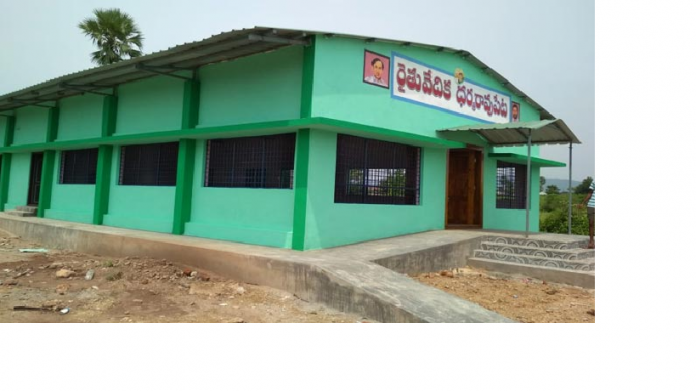Dr. Sivamohan Marepalli
The deepening agrarian crises in erstwhile Andhra Pradesh during 2014 saw farmers associations coming together and organizing ‘Rythu Swarajya Vedika’ in the wake of general elections in the State. This body was aimed to work as a pressure group to primarily air farmer’s problems and clinch solutions from the government. In contrast to this farmers’ initiative, the government of Telangana launched ‘Rythu Vedikas’ on its own. However, it differs from the earlier agenda of Rythu Sangha though a few of the objectives are similar.
Completely funded by government
Telangana government earmarked Rs. 577.21 crore towards construction of as many as 2601 ‘Rythu Vedikas’ for farmers – one each in every 5000 acres of area. Each Rythu Vedika premises is expected to incur a cost of Rs.22 lakh for construction of building which houses a spacious hall for meeting room for office and a room for ‘Rythu Bandhu’ functionary. Some of these buildings are constructed with donations received in form of money or land from the farmers. However, out of the total construction of the building in many cases, the agriculture department covers Rs. 12 lakhs for each premises and rest Rs. 10 lakh drawn from MNRES fund. Thus, this initiative came completely from government and is aided by an agricultural officer placed at each Vedika.
Collective voice on farmers’ issues
It is aimed that farmers by organizing in to groups can raise their voice collectively on issues confronting them. As a result, the farmers will be benefited to get higher prices for their agricultural produce and also better marketing facilities. Also this platform is expected to have cross fertilization of thoughts in addressing problems mutually and innovating in production techniques, post harvest technologies and realizing better returns in the marketing of their agricultural output. It is also expected that through these platforms farmers will be able to protect their rights and can discharge their duties without interferences. The scheme rests on collective principles and is highly laudable. This experiment can be viewed as a step in furthering the revolution of ‘science innovation system’ in agriculture sector in India. More opportunities of PPP emerge if the Vedikas function in right direction.
Beware of twinmaladies
A word of caution is needed in grounding such organization at grass root level in India. We have ample evidence from the functioning of cooperatives water users associations; joint forest management committees to name a few. All of them have met with mixed results. Such organizations run the risk of becoming adjuncts to political parties paying secondary importance to the objectives intended. Ensuring institutional and structural clarity is highly important in designing grass root organizations. Let us hope that the Rythu Vedkas do not fall prey to the twin maladies that usually plague village organizations namely confrontations with other local bodies like Panchayats and internal dissensions stemming out from power politics and self interests.





